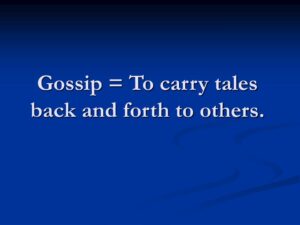Hadhrat Sheikh Zakariyyah (rahmatullahi alaihi) – 4
![]()
SOME SAYINGS OF HADHRAT SHEIKH ZAKARIYYAH (rahmatullahi alaih)
1) It is the saying of our seniors that whoever looks at our end will be unsuccessful, and whoever looks at our beginning will be successful, because the initial period is the stage of mujaahadah while the final period is the stage for the opening of the door of futْhaat (spiritual realities). If anyone viewing the final stage fixes it as the standard, he will be unsuccessful.
2) It comes in the Hadith that there are many of Allah’s servants with dishevelled hair and laden with dust, who are buffeted from the doors of people. If they take an oath in the Name Allah (for something to happen), Allah will fulfil it.
By means of riyaadhat and mujaahadah this rank can be attained.
In another Hadith it is said that by means of Nafl Salaat a man can reach closeness to Allah Ta’ala. This process by way of Nafl Salaat continues until “I (Allah) make him my beloved.” Thereafter, whatever he does will be in conformity with Allah’s pleasure.
Indeed, Allah’s path is easy to follow. Experience proves this.
3) Brother, whatever you do, do it for Allah’s pleasure. Don’t do it for your desire and pleasure. Do at least something. Practise it in Ramadhaanul Mubaarak. None of our seniors says that you should not be employed (i.e. earn a living).
4) Rasulullah (صلى الله عايه وسالم) said that there are 360 joints in the human body. When man rises safely in the morning, then in gratitude it is incumbent to give Sadqah for each joint’s health and safety. In the same Hadith it is mentioned that sexual relations with one’s wife is also Sadqah. The Sahaabah said that a man fulfils his own desire with his wife. What, therefore, is the Sadqah in it? May Allah Ta’ala elevate the ranks of the Sahaabah. By asking for explanations on insignificant issues, they had in fact left a great treasure for the Ummah. In answer to this query of the Sahaabah, Rasulullah (صلى الله عايه وسالم) said:
“If a man spends his energy in haram, will he not be sinful?”
The Sahaabah said: “Yes, most certainly.”
Rasulullah (صلى الله عايه وسالم) said:
“If he engages in relations with his wife with the intention of abstaining from haram why will he not be rewarded?”
5) My friends! Submit to Malik (Allah Ta’ala), then all things will submit to you. You are aware of the stories of the Sahaabah. Once, there was a need for the Muslims to set up camp in one of the jungles of Africa which was teeming with wild animals. Hadhrat Uqbah, the commander of the army, took a few Sahaabah with him to a spot in the jungle and announced:
“O wild beasts! We are the Companions of Rasulullah (صلى الله عايه وسالم). We intend to set up camp here. Vacate from here. After this, we shall kill whomever we find.”
Was this an announcement or some bolt of lighting? The animals taking their little ones immediately left.
6) It is my experience that fasting produces strength while abstaining from food during other months (other than Ramadhaan) produces weakness.
7) My Hadhrat Aqdas Saharanpْri said that in the Qur’aan Majeed Allah Ta’ala says:
“If you enumerate the ni’mat (bounty) of Allah, you will not be able to enumerate it.”
Here the singular (i.e. ni’mat) is used because in even a single ni’mat there are many bounties.
8) Whatever you do, do it for Allah’s pleasure. The Namaaz which is performed to show other’s will be struck back on your face.
9) Towards the end of his life, Hadhrat Gangohi lost his eyesight. My father was the close khaadim of Hadhrat Gangohi. Once Imaam Rabbani asked my father: “Molvi Yahya, who all are here?” Whenever Hadhrat Imaam Rabbani wanted to say something important, he would pose this question. My father said: “Ilyas and I.” Imaam Rabbani then said with much enthusiasm:
“Irrespective of the indifference (ghaflat) with which Allah’s Name is taken, it will exercise its effect.”
This is also my opinion. A kaafir becomes a Muslim by taking Allah’s Name. If it is recited with conviction, it effaces kufr. However, in the beginning the thaakireen are diligent and they experience good states (haalaat). This is a very delicate stage. One should not be deceived by it. When the heart becomes accustomed to thikr, those haalaat decrease. One should not despair on account of this (i.e. the decrease in the initial pleasurable states).
10) Abstain from adopting the dress and appearance of aliens (i.e. non-Muslims). We Muslims should adopt the Islamic dress-style of our Masha-ikh. Ten or fifteen years ago it was my fatwa that people wearing tight-fitting garments should stand in the last saff.
11) It becomes easy to do something which has become grounded in the heart. It has been heard that people watching cinema, stood the entire night until the morning. If we say that a certain buzrug performed Fajr Namaaz with Isha’s wudhu – performing Tahajjud the entire night – then people are astonished. The basis for such endurance is eagerness and enthusiasm.
12) You engage in thikrullah here. But after leaving from here, people write complaining that the same effects are not experienced. If you establish the environment of this place over there, those effects will remain. Over here are the effects of the environment. Punctual adherence to Ma’mْlaat (Ibaadat practices) is the ladder of progress.
13) Save up in the bank of the Akhirah whatever there is to save. The Ulama and the Masha-ikh (of this age) are involved in evil gazes, evil deeds and in every kind of sin. In fact, we regard gheebat to be nothing (i.e. not sinful). The fourth chapter of (the kitaab) I’tidaal is worthy of studying.
14) The aim of tablighi work is to develop piety.



